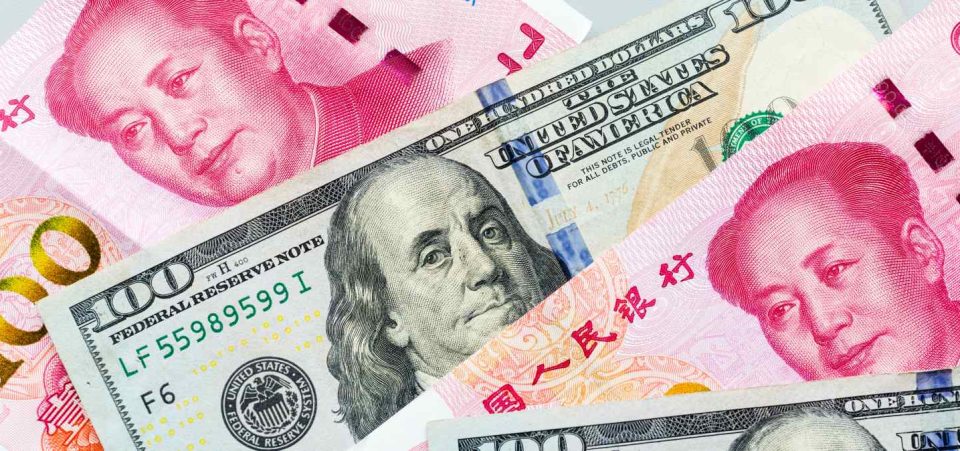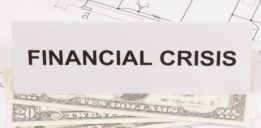U.S. Dollar Reserve Status Being Questioned
As it stands, the U.S. dollar is the most dominant currency in the world. This status is being challenged, however. If the U.S. dollar loses its reserve status, there will be dire consequences for many investors, businesses, and consumers.
Understand this: every major fiat currency in history has lost its reserve status over time and a new currency has taken over. Just before the U.S. dollar became the major currency, it was the British pound that held reserve status. So, saying that the global economy could de-dollarize isn’t an out-of-this-world idea.
One of the reasons the dollar is the dominant currency is that it’s used in global trade, products and services are priced in dollars, and central banks around the world hold it in their foreign exchange reserves.
Recently, however, a story broke that Saudi Arabia is looking at the possibility of accepting the yuan as a form of payment for the oil it sells to China. (Source: “Saudi Arabia Considers Accepting Yuan Instead of Dollars for Chinese Oil Sales” Wall Street Journal, March 15, 2022.)
On the surface, this might not seem too worrisome, but think of the big picture. Oil is one of the commodities that’s traded primarily in U.S.-dollar terms around the globe, hence the word “petrodollar” being coined. If Saudi Arabia is willing to accept yuan for oil, it could be an initial stage of the dollar losing its reserve status.
Now, one has to ask: what’s stopping other countries from accepting yuan for things they sell? And could this move by Saudi Arabia open the door for other countries to do the same?
Let’s rewind a little bit. While Saudi Arabia being willing to accept yuan for oil is certainly a major recent development, over the years, many other developments have made the case for de-dollarization much stronger.
For example, central banks (especially those in emerging economies) have added a significant amount of gold to their foreign reserves. In 2021, their gold holdings were at 30-year highs. This could be a sign they’re losing trust in the U.S. dollar.
Also, China has set up yuan trading hubs, has been continuously trying to price commodities in the yuan, and has been making trade deals that are priced in the currency. Plus, the country has set up an organization similar to the International Monetary Fund (IMF) to promote the use of the Chinese yuan: the Asian Infrastructure Investment Bank.
Beyond all this, the economic crisis of 2008–2009, the trade-war-related noise during President Donald Trump’s administration, and now the sanctions against Russia could make many countries rethink their stance on the U.S. dollar.
What If U.S. Dollar Loses Reserve Status?
I can’t stress enough how dominant the U.S. dollar is in the global economy. If the greenback loses its value and reserve status, many problems could follow.
Here’s some perspective: according to the Bank for International Settlements (think of it as the bank of central banks), at the end of 2019, the U.S.-dollar-denominated debt outside the U.S. was $12.2 trillion, up by six percent from a year earlier. (Source: “BIS Global Liquidity Indicators at End-December 2019,” Bank for International Settlements, April 27, 2020.)
What will happen to investors who own this debt if the value of the currency plummets?
From a consumer perspective, it could be dreadful.
If you’ve gone shopping recently, you’ve probably seen how expensive things have gotten. It’s not just the gas prices that have jumped; everything else has, too. If the U.S. dollar loses its reserve status, it could mean the value of the dollar will go much lower. Then, consumers could find themselves struggling to afford things they need. Their purchasing power would collapse.
How to Protect Your Wealth if U.S. Dollar Crumbles
Dear reader, while there might be some proponents of the idea that the U.S. dollar could collapse overnight, I highly disagree with that notion.
I believe that the odds of the dollar losing its reserve status are increasing. It’s certainly more likely now than it was 20 years ago. However, it could take many years and will happen gradually. It would only be in the latter portion of the global de-dollarization that the value of the greenback would crumble significantly.
How does an investor hedge against the fall of the U.S. dollar? It might not be a bad idea to look at real assets like gold or silver. These precious metals have a history of providing wealth preservation in times of currency collapses and devaluations.
Are cryptocurrencies worth looking at as a way to protect oneself from de-dollarization?
I believe crypto is a fairly amateur asset class for now, and it hasn’t been tested by a large financial crisis. There’s also a major regulation risk present. Nevertheless, in recent economic situations (such as what’s happening with Russia at the time of this writing), cryptocurrencies like Bitcoin could have been worth holding on to.






